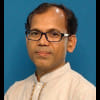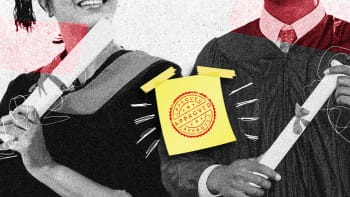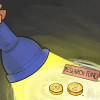Of professors and publications

I have been editing the Scopus-indexed journal Asiatic since 2020. It is arguably one of the prestigious publications on Asian (literary) themes and writers. In this role, I have interacted and made friends with a great number of academics who seem to be grateful for their experience with the journal's editorial process. I have high regard for their interest in knowledge production and for their academic competence. But I have also come to know some others whose approach to research, scholarly insight, and academic prowess have not been very impressive.
Once I had email exchanges with an academic from a far-off country. Before formally submitting their manuscript to Asiatic, they wanted to tell me about themselves and to know more about the journal.
They introduced themselves to me with a great emphasis on their designation, that is, "full professor." Soaring above prejudice or preconceived notions, I requested them to submit their work for evaluation and consideration for publication in the journal. They obliged.
However, the quality of their work didn't go very well with their professional identity on which they were laying so much emphasis in the email communication. Very basic norms of research that I teach undergraduate students were absent in the work they submitted. It was desk-rejected. I asked a member of the editorial board to send the "full professor" a polite rejection letter.
Last year, I was conversing on the phone with an academic friend who is affiliated with a university in Bangladesh. I tried to encourage them to do research and publish. I even mentioned that they might consider submitting their work to Asiatic for publication. But I was not prepared for what they told me in response to my suggestion.
They told me that research and publication were not prerequisites for promotion to professor. With age and teaching experience, they would be a "full professor" automatically. Initially, I shuddered at this process of promotion to professor, but eventually came to terms with the reality in Bangladesh. What they said is true.
The preponderance of professors on the lists of academics in various departments of Bangladeshi universities is simply staggering. Undoubtedly, those lists contain names of many gifted professors with impressive academic credentials and achievements. But there are also others who became "full professors" through the process that my friend mentioned to me.
I strongly believe that promotion of undeserving academics to the rank of professor is an insult to those who have moved their way up the academic ladder the harder way: through genuine scholarship and valuable academic contributions. Promoting undeserving colleagues to the rank of professor definitely causes disquiet among worthy professors. And the anguish of the latter often remains suppressed. Let me repeat: promoting incompetent academics to professorship amounts to a total disregard to the academic commitment and devotion of sound and true professors.
In June 2010, I joined the Department of English Language and Literature at the International Islamic University Malaysia (IIUM) as an assistant professor, leaving my academic position at the University of Dhaka. I am the only one in my department at IIUM to have been promoted to professor since then. In nearly 14 years, most of my esteemed colleagues who have retired from the department have done so as assistant or associate professors.
Most of my colleagues who are currently assistant or associate professors, or those who have retired with these ranks, have terminal degrees from universities in (English-speaking) countries. I will be remiss if I don't mention that many of my assistant and associate professor colleagues are no less competent than those who carry the title of "full professor" in certain countries.
University teachers generally remain busy with their work with little time to bother about the writing of fellow academics. But my role as the editor-in-chief of Asiatic has offered me a window of opportunity to read and evaluate the work of academics from various countries. While I remain awed and inspired by the writing skills and abilities of many academics, there are others whose work cannot be regarded as a mark of academic competence.
In my experience of reading manuscripts produced by university academics, unfortunately, in many cases I have not noticed much difference in the quality of work produced by professors and non-professors. Often, I have felt embarrassed to have had to decline to publish manuscripts produced or submitted by professors. In some cases, I have read manuscripts with multiple authors including professors, but their quality does not reflect the experience and expertise expected of those senior academics. A disconcerting question I often ask myself is: has the professor really contributed to such a manuscript whose author list includes their name? If the answer to this question is in the affirmative, one would form a very poor impression about their academic abilities. Conversely, if the answer is in the negative, we are face to face with an ethical crisis here. Is it morally acceptable to insert one's name in the author list of a manuscript to which one has not contributed sufficiently enough to deserve authorship?
What I dare suggest in this column is that there are fundamental issues in the way academics in some countries are promoted to professor. Therefore, the difference in the quality and academic commitment of professors and non-professors is increasingly becoming blurred. I do not doubt the inherent potential of professors who may not be worthy of the designation that they carry. It may well be the case that years of non-involvement in meaningful research have blunted their academic abilities. Their writing skills may have rusted from all those years of not writing and not publishing. What's more, the opportunity for them to become co-authors of manuscripts to which they make little or no contribution has rendered them averse to putting efforts that are needed to produce quality materials.
The non-involvement of professors in significant research and scholarship has far-reaching consequences. It negatively affects the quality of instruction they provide to students. If they themselves are not good (academic) writers, one may ask: how can they train their students to be competent future writers and scholars?
I am not proposing to the authorities and stakeholders of universities to strip (incompetent) professors of their titles. Instead, through anecdotes and personal observations, I want to make a moral appeal to senior academics to be more active in research and publication and to have unwavering commitment to quality work. Their meaningful engagement in research and publication will have a positive impact on the way they teach and on the course content that they transmit to their students. Needless to say, that will help protect their country from intellectual slavery to hegemonic foreign powers. Therefore, this is the best way for academics to serve their country and its people. If they choose otherwise and remain busy establishing links with, and seeking favours from, the corridors of powers, they may gain instant perks and popularity, but that will amount to intellectual betrayal to the nation.
Md Mahmudul Hasan is professor in the Department of English Language and Literature, International Islamic University Malaysia. He can be reached at [email protected].
Views expressed in this article are the author's own.
Follow The Daily Star Opinion on Facebook for the latest opinions, commentaries and analyses by experts and professionals. To contribute your article or letter to The Daily Star Opinion, see our guidelines for submission.

 For all latest news, follow The Daily Star's Google News channel.
For all latest news, follow The Daily Star's Google News channel. 












Comments